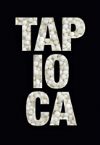|
ESL Forum:
Techniques and methods
in Language Teaching
Games, activities
and teaching ideas
Grammar and
Linguistics
Teaching material
Concerning
worksheets
Concerning
powerpoints
Concerning online
exercises
Make suggestions,
report errors
Ask for help
Message board
|
ESL forum >
Ask for help > Past simple or past perfect?
Past simple or past perfect?
|

ohermann

|
Past simple or past perfect?
|
|
Hello friends, In the textbook I teach from there is this exercise: When the Baker family ______ 1 (arrive) in Spain after an eighteen-hour journey, they ______ 2 (have) two breakdowns, _______ 3 (lose) their way three times, _______ 4 (be) in seven traffic jams and _______ 5 (have) a minor accident. They _______ 6 (lbe) all absolutely exhausted. And then they _______ 7 (ldiscover) that they _______ 8 (leave) the name and address of their hotel at home. ... (and the story goes on) Students should complete the sentences with the simple past or past perfect. Numbers 1,6 and 7 should be the simple past, the other numbers past perfect. Nevertheless, one of my students insisted on sentences 2,3,4 and 5 also being the simple past. I know it is theoretically possible with the meaning all these things happened in chronological sequence. But does it make sense in the context? I don’t think so. |
29 Nov 2015
|
|
|
|

Mariethe House

|
|
Hi Ohermann i �ll just give yo my opinion: I am afraid your student is wrong! If you use the simple past in 2,3,4, and 5 it means the incidents took place after they arrived whereas, in the context, it is obvious that they (the incidents) happened before the family actually arrived in Spain! So the tense needed there is indeed the past perfect! You are right!
|
29 Nov 2015
|
|
|

cunliffe

|
|
Hi Oto, You and Mariethe are right, for the reason Mariethe states. It would actually be confusing to use the simple past there. To be absolutely clear that these mishaps happened before they arrived, we do need the past perfect.
|
29 Nov 2015
|
|
|

aee.aee

|
|
Hello. The only context I can imagine for Past Simple is to start the story with number 2. To describe the story in chronological order as it happened. Otherwise, it should be Past Perfect. ... (They started a journery.) They __had____ 2 (have) two breakdowns, __lost_____ 3 (lose) their way three times, __were_____ 4 (be) in seven traffic jams and __had_____ 5 (have) a minor accident. They __were_____ 6 (be) all absolutely exhausted. And then they ___discovered____ 7 (discover) that they __had left_____ 8 (leave) the name and address of their hotel at home. ... However, number 8 still needs to be Past Perfect because they discovered what they had done/ hadn �t done before their journey. |
29 Nov 2015
|
|
|

Tapioca

|
|
Hi Oto, Is it possible your student is reading the word �after � wrongly? This refers back to the �Baker family arrived � and not forward (as perhaps she thinks?) to the series of mishaps. The biggest clue is in that first phrase: "When the Baker family arrived in Spain after an eighteen-hour journey" This is telling the reader that there was a long journey during which a number of things happened, all before their arrival. The �When � is also important as it sets the "anchor" of a single moment in the past (instead of, for example, �After �) and therefore places the other events before that point (and therefore requiring past perfect). Because it suggests a single point in time ( �When they arrived � and not �After they arrived �) and not a much longer duration, it would be perverse to imagine that all those things happened in sequence upon arrival. So you are absolutely right, your student �s interpretation does not make sense. Tap |
29 Nov 2015
|
|
|

cunliffe

|
|
What concerns me about this, Oto and anyone reading, is that many speakers eschew the past perfect nowadays; they just don �t bother with it and think a past simple will do...Or is it just around here? It is quite difficult to teach, but I for one, am fighting the good fight! |
29 Nov 2015
|
|
|

ohermann

|
Dear all, thanks a million for your comments and exhaustive notes.  Because I�m not a native speaker, I wanted to be a hundred per cent sure. Lynne, probably the problem you mention is that in some languages, e.g. Czech, we just have/use past tense (although we have something similar to simple and progressive forms), but nothing like past perfect. We use the past tense plus other ways (words similar to after and before) to indicate the sequence of the things happened. That�s why it is not always easy for Czech students to realize immidiately the use of the past perfect while speaking. Once again, thanks a lot and have a nice working week  , Oto
|
29 Nov 2015
|
|
|

yanogator

|
|
Just to muddy the waters here, it is possible (but clearly not the intent of the exercise) that all these horrible things happened in quick succession just after the Bakers crossed the border into Spain, adding to the exhaustion of the 18-hour journey. In that case, only #8 would be past perfect. Bruce  |
29 Nov 2015
|
|
|

ohermann

|
|
Hi Bruce, I have no problem with muddy waters.  You know, my problem is the articles.  |
30 Nov 2015
|
|
|

alien boy

|
|
I�m with Bruce on this one.�For clarity, the passage should be presented in chronological order or with a qualifier indicating when the events occurred. By starting the passage with � � "When the Baker family ______ 1 (arrive) in Spain after an eighteen-hour journey"� it clearly presents the idea that the following events occurred after they had arrived in Spain, not before their arrival. From my perspective, as a native speaker, your student is correct. � To make it clear that these events happened during their 18 hour journey it should be more like this: � � The Baker family ______ 1 (arrive) in Spain after an eighteen-hour journey, during which�they ______ 2 (have) two breakdowns, _______ 3 (lose) their way three times,� _______ 4 (be) in seven traffic jams and _______ 5 (have) a minor accident. They _______ 6 (lbe) all absolutely exhausted. And then they _______ 7 (ldiscover) that they _______ 8 (leave) the name and address of their hotel at home. ... (and the story goes on) � Kind regards, AB |
30 Nov 2015
|
|
|

Tapioca

|
|
@ AB Interesting. :-) I agree that if the writer had used �By the time that � instead of �When � it would be less ambiguous, but I can �t see that the sentence as it stands �clearly presents the idea that the following events occurred after they had arrived in Spain �. I would agree that it is possible to interpret it that way, but I don �t think the wording and the content would suggest that this is the most likely sequence. Not sure if this will clarify what I mean or not, but have a look at this sentence: When she got out of prison after 5 years, she_______(lose) a lot of weight and ________ (look) much thinner. Of course you can interpret it as the woman losing weight after leaving prison (i.e. as �lost � and �looked �) but you would be wilfully ignoring common assumptions. Everyone can do that of course, but it �s harder to argue that this would be the majority view and it would lead to misunderstandings (people asking her for prison recipes instead of sending her tiffin boxes). I think there are similar common assumptions in the story about the Bakers and I think Bruce alludes to that when he says that is �clearly not the intent of the exercise �. Yes, it �s possible to imagine the mishaps occurring after they arrived, but I think it �s hard to argue that that is a likely or necessary conclusion based on the wording. I have a feeling we �ll have to agree to disagree?  Whatever happens, I think next year they �ll probably stay at home and hope their activities are not picked over by a bunch of English teachers :-) Whatever happens, I think next year they �ll probably stay at home and hope their activities are not picked over by a bunch of English teachers :-) Tap |
30 Nov 2015
|
|
1
2
Next >
|